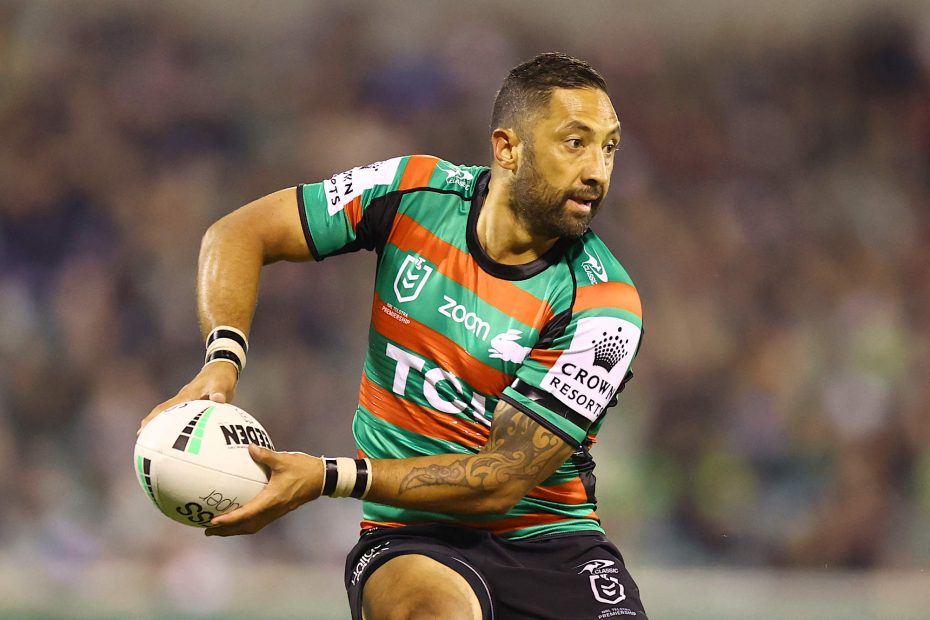It was inevitable really. Just when you think you’ve got it cracked, something appears to make you feel stupid all over again.
Life covering the Greatest Game of All involves a lot of watching, discussing, interpreting and analysing rugby league, but there’s always something coming that you can’t understand.
Prior to the launch of NRL Grid, the infuriating, addictive rugby league trivia game, I’d have considered myself both someone who knew a lot about the NRL. Now, I’m painfully aware of how little I know.
Apologies to anyone who might have invested in The Roar’s rugby league columns over the last two seasons, because there is an uncomfortable truth at the heart of our coverage.
My rugby league knowledge is so poor that I have completed just two grids of the 40 published so far.
If you’ve not been across the game that has taken NRL silly season by storm – and if there’s a more silly season idea than a column about a rugby league trivia game, do let us know – then maybe an explainer is in order.
It’s a fairly simple concept, a sort of NRL sudoku.
There’s a grid of nine squares, with three columns running horizontally and three running vertically.
Each column has a category – “Premiership winner”, “Benji Marshall teammate”, “Debuted between 2010-2015”, “Played for Manly” and the like – and the player has to find the players who fit the two categories that intersect.
If you have, for example, “Debuted between 2010-2015”, and “Benji Marshall teammate”, then “Luke Brooks” would be a pretty obvious answer. Do that across all nine squares correctly and you have yourself a grid.
You get exactly nine guesses to complete the grid, so there’s no margin for error at all.
But wait, there’s more. The algorithm behind the game has ranked all possible answers to reward the most obscure and punish the most common.
So much as Luke Brooks would be a correct answer, it is far from the best answer. Try a “Mark Flanagan” and you’ll do a lot better.
The categories, however, often align closely. “Debuted between 2010-2015”, and “Benji Marshall teammate” might come with another one of “Wests Tigers players”. Do you waste your Mark Flanagan answer on that, knowing that you might need it again?
(Photo by Mark Nolan/Getty Images)
Therein lies the challenge. Finishing at all is hard enough, and that’s before you factor in the scoring system.
Picking a particularly good answer gets your either a little unicorn (best 2%), a wizard (best 15%) or a brain (best 30%), as well as a low score.
Add together nine correct answers with low scores and you’ll get something worth plastering all over social media to show your friends/enemies how clever you are.
The game itself will rank you day by day, so you know how good you are comparatively with everyone else who attempted, a sobering system on the few occasions that all nine squares are filled.
If we were trying to reason for my poor form – beyond a simple lack of knowledge, that is – the tactic of aiming for a low score rather than just a correct answer might well be it. Call me Icarus.
NRL Grid is not a new idea. Immaculate Footy has been using FB Ref’s huge database to power a soccer equivalent for a long time, and with multiple competitions and a huge diversity of nations taking part, that can be even more devilish.
But for the Australian punter, it’s something that is entirely new and, at a time with no actual footy to talk about, it provides the perfect opportunity to wallow in the past and get the brain ticking over.
Having not been in the country for the bulk of the 25 years covered, the vast majority of which were also in a time when just one or two NRL games were shown on UK TV (and you had to be up in time to see them), perhaps it isn’t surprising that niche knowledge eludes me.
Certainly, trying to recall the finer points of Michael Weyman’s career when all you can remember is a middling year with Hull KR in his dotage is a tough ask.
For me, it’s been a steep learning curve.
I was a quarter of the Leeds University Pub Quiz champions of 2008, I’ll have you know, and once applied for Mastermind with the specialist subject of “British rugby league since 1996”. I expected better of myself.
All I need, perhaps, is for someone to create a Super League version – that way, I might stand a chance.
